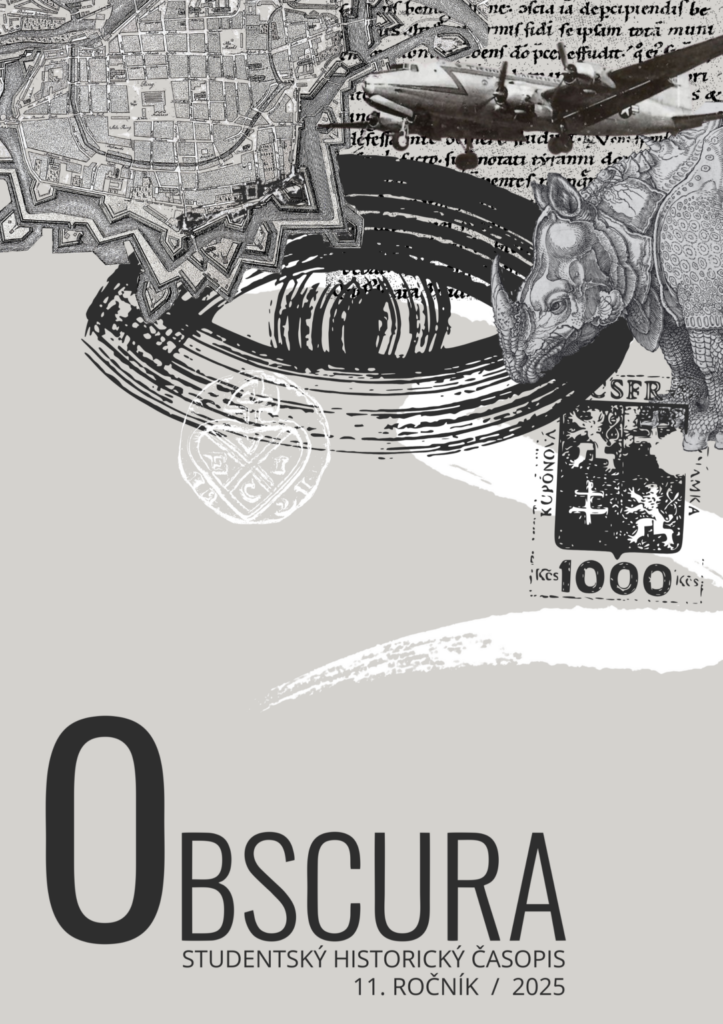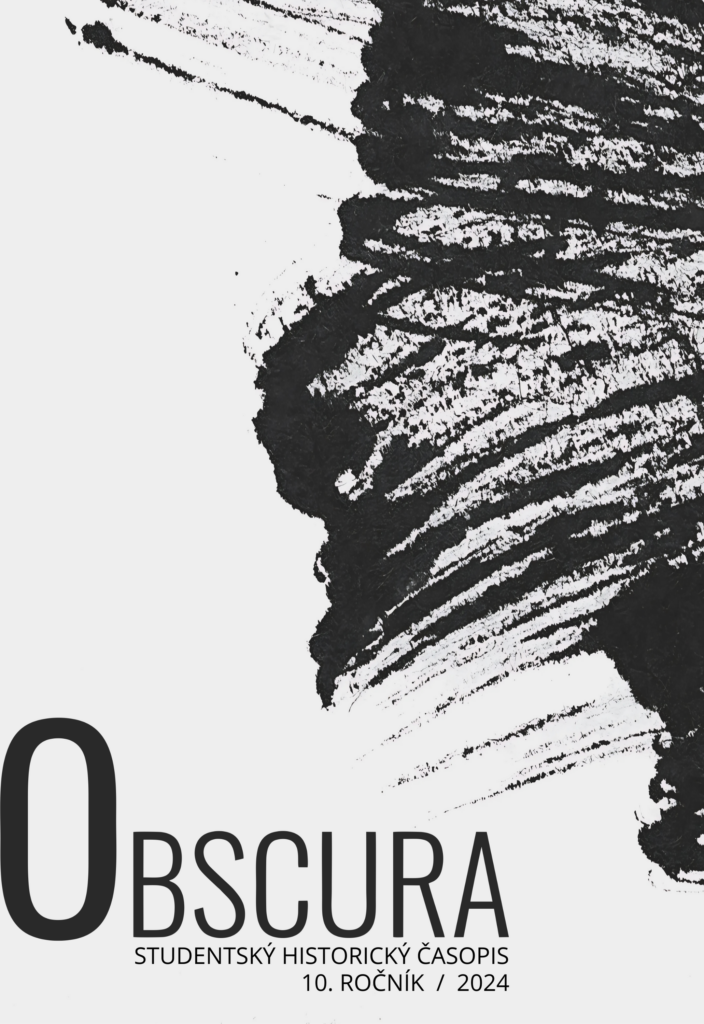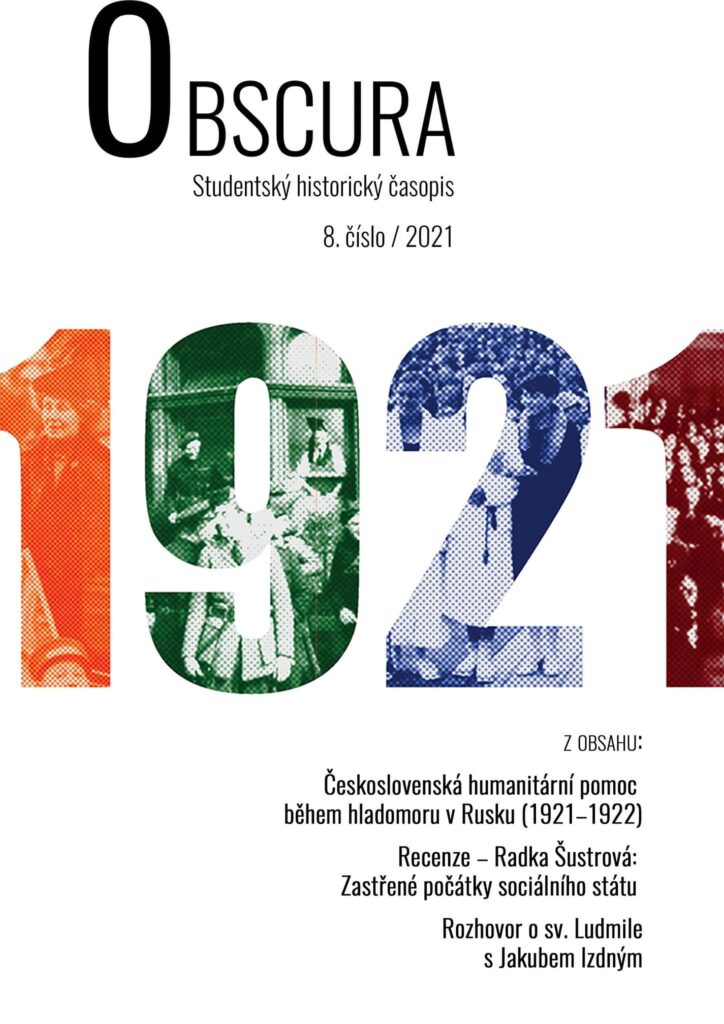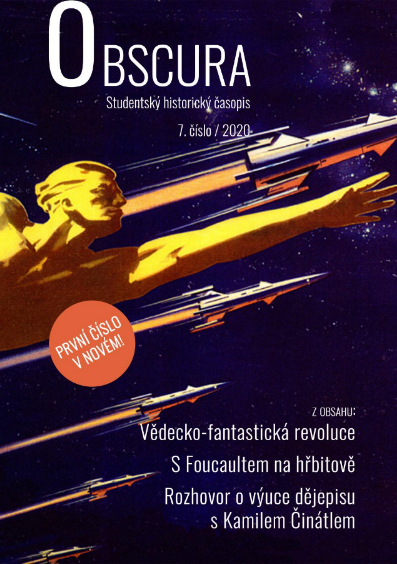archive
All issues published since 2014 are freely available for browsing in the Issuu online database. Issues published since 2024 are freely accessible on this website. The current printed issue can always be obtained at the lending desk of the Library of Historical Cabinet in the main building of the Faculty of Arts, Charles University. Please note that the stock is limited. All printed issues are available in the collections of the Jan Palach Library, also located in the main building of Faculty of Arts. A selection of the most recent issues can also be found at selected events organized by the History Students’ Association of Faculty of Arts. If you would like to receive a printed copy of the journal by mail, please contact us at obscura@ffabula.cz, and we will be happy to accommodate your request.
The 11th Volume (2025)
The contents of the latest issue of our journal are a celebration of the student community and early-career scholarship. It features more than two dozen scholarly and popularizing texts that reveal diverse facets of the past through the perspectives of historical disciplines and interdisciplinary approaches. Readers can look forward, for example, to a historical-linguistic analysis of manuscript variants of the Legenda Christiani, several contributions on the history of elites in the early modern period, and explorations of new analytical lenses applied to topics that may seem already exhaustively researched. The issue also includes thought-provoking commentaries on the reflection of history in the present, reviews of new literature, films, theatre productions, and an exhibition, as well as interviews and reports.

The 10th Anniversary Volume (2024)
The Jubilee 10th Volume has been released to celebrate 10 years of the journal!
Obscura has received a number of updates for its 10th anniversary, but the most significant of these is the jubilee 10th issue, which has been declared non-thematic and open to all texts and ideas that the authors wish to present to the historical community and those interested in the field from the general public. Readers can look forward to, for example, a discussion on Czech statehood in 1520s, an analysis of Čechov’s novel Nový epochální výlet pana Broučka, tentokráte do XV. století from a historian’s perspective, or a reflection on teaching methods in Czech history education. The issue also features an exclusive interview with prof. Paulem Josephsonem on the history of science, a report on studying history at the Sorbonne, a review of the new Czech translation of The Dawn of Everything, and many other texts…

The 8th Volume (2021)
The 1st Issue of the 8th Volume on the Theme of 1921
Every year in human history can be a turning point. Since the beginning of our era, there are few years during which no significant event occurred, whether regionally or globally. Although history cannot be reduced solely to exact days, years, and descriptions of events, it is closely tied to dates. However, some dates attract more attention than others.

The 7th Volume (2020)
The 1st Issue of the 7th Volume on the Theme of From Mythical Monsters to Star Wars: Human Imagination Throughout History
Fantasy, or imagination as a product of the human mind, has accompanied society since the very beginning of time. Human concepts often change with increasing scientific knowledge, yet people have always used imagination to explain the unknown, the inexplicable, and the terrifying phenomena. However, these creations are not made only out of fear, but also as part of entertainment, as we know from modern times. Often, these stories, in the form of heroic and foundational myths, became part of collective identities or state ideologies. Thus, fantasy in human societies has played and continues to play a role that is not only unifying and supportive but also exclusive, meaning it can be a form of exclusion.

The 1st Issue of the 9th Volume on the Theme of Decolonization of History has been canceled.
In recent years, the debate in historical fields has increasingly acknowledged changes in the way history is viewed beyond the boundaries of the Euro-Atlantic world. The postcolonial turn is changing not only our understanding of the history of colonialism but also history on a global scale. This new perspective does not exclusively follow history from the position of the colonizers, but rather reflects the positions of the colonized, emphasizing their significance. Decolonization, as a process of changing the way we think about our historical knowledge, encompasses not only school history but also history education at Czech universities. This shift in perspective on world cultures also opens the question of how they are presented in memory institutions. Within the decolonization debate, there is a growing demand for critical historical research on the histories of former colonies, efforts to rid ourselves of the Eurocentric view, the opening of new topics, and a new portrayal of the power dynamics of former colonial powers. The Czech environment has so far stood aside from the discussion of colonial and postcolonial issues, which not only concerns the countries that directly owned colonies but also those that benefited from them and helped create their image…